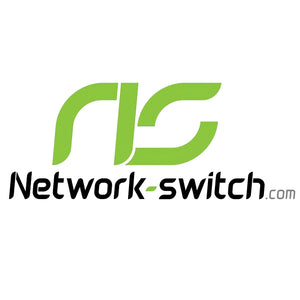Executive Summary
The Cisco ASR 9000 Series defines the gold standard in service provider routing. Engineered for scalability, density, and reliability, it combines modular hardware, software virtualization, and carrier-grade performance to power the world’s most demanding networks. With capacities reaching 48 Tbps, support for 100G and 400G interfaces, and IOS XR automation, the ASR 9000 ensures long-term growth and simplified operations.
From broadband and metro aggregation to 5G and cloud-edge deployments, it continues to be the backbone of global connectivity. Supported by Network-Switch.com’s fast delivery, expert configuration service, and lifetime support, the ASR 9000 offers both performance and peace of mind.

AR9000 Routers Overview
Market Position
The Cisco Aggregation Services Router 9000 (ASR 9K) series is purpose-built for carrier, cloud, and enterprise-scale edge networks. It consolidates multiple network layers - access, aggregation, and edge - into a single modular platform, reducing complexity and operating costs.
Powered by Cisco IOS XR, a resilient and programmable network operating system, the ASR 9000 supports end-to-end automation, real-time telemetry, and model-driven service provisioning. Its architecture addresses modern challenges:
- Exponential bandwidth growth driven by 5G, IoT, and video streaming.
- Service convergence across IP/MPLS, Ethernet, and broadband.
- Security and regulatory compliance in mission-critical environments.
With over a decade of evolution and proven field performance, the ASR 9000 remains the cornerstone of modern carrier and cloud networks.
System Architecture and Platform Design
The ASR 9000 is designed around a scalable, modular chassis that supports flexible line cards, route processors, and fabric modules - delivering massive capacity and high reliability.
Core Design Principles
- Modular Architecture: 4 to 16 slots depending on chassis model (ASR 9904 to ASR 9922).
- Fabric Scalability: From 3.2 Tbps (2008) to 48 Tbps today.
- High-Density Interfaces: 10G / 40G / 100G / 400G Ethernet line cards.
- Redundancy Everywhere: N+1 power modules, dual RPs, and fabric redundancy.
- Efficient Cooling & Power: Optimized airflow for lower energy consumption.
- Software: IOS XR ensures non-stop routing (NSR) and high availability.
At a Glance
| Parameter | Specification |
| System Capacity | Up to 48 Tbps |
| Interface Types | 10G / 40G / 100G / 400G |
| Operating System | Cisco IOS XR |
| Slots | 4, 6, 12, or 16 (model-dependent) |
| Redundancy | Dual RP, dual fabric, N+1 PSU |
| Typical Applications | Carrier edge, metro aggregation, data center interconnect |
This modularity enables pay-as-you-grow scaling while preserving investment in chassis and power infrastructure.
Key Features & Benefits
Each feature of the ASR 9000 Series directly addresses service provider priorities — performance, automation, flexibility, and lifecycle value.
Optimize Network Performance & Simplify the Edge
The ASR 9000 brings scalable simplicity to the network edge.
- Throughput: Up to 48 Tbps of full-duplex capacity.
- Interface Density: Up to 12 × 100G ports per line card.
- Reliability: 99.999% uptime with redundant control and forwarding planes.
- QoS & Traffic Engineering: Advanced capabilities for deterministic performance under heavy load.
Business Value: Consolidate multiple edge functions into one platform, reduce operational complexity, and deliver carrier-class services with consistent SLAs.
Automation & Programmability
The ASR 9000 is not just a router — it’s a programmable network system.
- Model-Driven Telemetry for real-time insights.
- Open APIs (NETCONF/YANG, REST, gRPC/gNMI) for integration with SDN controllers.
- Zero-Touch Provisioning (ZTP) for faster onboarding.
- Cisco Crosswork Automation Suite for closed-loop service assurance.
Business Value: Operators can automate repetitive tasks, cut OPEX, and deploy new services in hours instead of days.
Multi-Service Flexibility & Customer-Centric Design
The ASR 9000 supports multiple service types on a single platform, eliminating the need for parallel infrastructures.
- Supported Services: MPLS, L2/L3 VPNs, Carrier Ethernet, Broadband Edge (BNG), and Segment Routing.
- Cloud Integration: Seamless interoperability with SDN and NFV environments.
- Traffic Segmentation: Flexible service isolation per tenant or enterprise.
Business Value: Deliver high-value, customized services across business, mobile, and residential customers while maintaining unified management.
Integrated Security & Compliance
Security is embedded at every layer of the ASR 9000 architecture.
- Hardware Security: Trust Anchor Module (TAM), Secure Boot, and hardware root of trust.
- Traffic Protection: Built-in MACsec and IPSec encryption.
- Network Defense: DDoS protection and advanced ACL filtering.
- Compliance: Meets global telecom regulatory and privacy frameworks.
Business Value: Ensure service integrity, customer data protection, and compliance across multi-tenant environments - critical for 5G and enterprise edge deployments.
Investment Protection & Future Readiness
With its modular design and forward-compatible architecture, the ASR 9000 ensures long-term value.
- Backward-compatible chassis supports previous-generation line cards.
- Upgrade paths to 400G-ready modules.
- Support for open networking standards and APIs.
- Decade-long lifecycle support and proven stability.
Business Value: Extend hardware lifespan, minimize capital refresh cycles, and protect your network investment against rapid technological shifts.
Platform Evolution & Model Comparison
The ASR 9000 has continuously evolved over more than a decade to meet exponential traffic demands.
From its introduction in 2008 (10G era) to today’s 100G and 400G cloud-scale routers, it has remained Cisco’s most trusted carrier platform.
| Model | Slots | Max Throughput | Port Speeds | Ideal Deployment |
| ASR 9904 | 4 | 8 Tbps | 10G/40G/100G | Compact metro edge, BNG |
| ASR 9906 | 6 | 12 Tbps | 10G/100G | Service provider aggregation |
| ASR 9912 | 12 | 24 Tbps | 10G–400G | Metro core, data center gateway |
| ASR 9922 | 16 | 48 Tbps | 10G–400G | Carrier backbone, cloud edge |
Evolution Highlights:
- Transition from 10GE → 40GE → 100GE → 400GE connectivity.
- Line cards now support 12 × 100GE ports or higher density configurations.
- Upgraded fabric modules for scalable throughput and energy efficiency.
Typical Deployment Scenarios
The ASR 9000’s versatility enables deployment across a wide range of architectures.
| Scenario | Deployment Role | Application | Value Delivered |
| Service Provider Edge | Aggregation and routing of subscriber traffic | MPLS VPN, broadband, enterprise services | Carrier-grade scalability and QoS |
| Metro Aggregation Network | Consolidate access layers | Mobile backhaul, IP RAN | Reduced footprint and power usage |
| Data Center Gateway | High-capacity interconnect | Multi-tenant routing, EVPN fabrics | Low latency, cloud integration |
| 5G / Cloud Edge | Distributed service edge | MEC, IoT aggregation, network slicing | Secure, low-latency operations |
Why Buy from Network-Switch.com?
As a global IT hardware distributor, Network-Switch.com bridges technology and execution with guaranteed delivery speed, certified expertise, and flexible procurement.
Our Value to You
- Fastest Delivery: Multi-warehouse stock, 5-day global shipping.
- Certified Expertise: CCIE, HCIE, HPE ASE engineers providing configuration guidance.
- Comprehensive Warranty: 3-year hardware warranty + lifetime technical support.
- Flexible Options: Original Cisco or compatible line cards and optics to reduce TCO.
- Global Trust: 100+ partners and over 10,000 enterprise and carrier clients served.
FAQ: Technical & Procurement Questions
Q1: How does the ASR 9000 differ from the ASR 1000?
A: The ASR 9000 targets carrier and large-scale aggregation networks, while ASR 1000 is designed for enterprise and branch edge routing.
Q2: Can older line cards be used in new chassis models?
A: Yes. Cisco maintains backward compatibility across most ASR 9000 platforms.
Q3: What speeds and optics are supported?
A: 10G, 40G, 100G, and 400G Ethernet interfaces using SFP+, QSFP+, and QSFP28 transceivers.
Q4: Does it support automation and telemetry?
A: Yes. IOS XR natively supports model-driven telemetry and automation frameworks such as NETCONF/YANG and gRPC.
Q5: What is the typical delivery time?
A: Standard configurations are available from stock or in transit, with lead times as short as 5 days via Network-Switch.com.
Conclusion
The Cisco ASR 9000 Series Routers stand as the industry benchmark for carrier-grade scalability, performance, and reliability. Whether deployed at the edge, metro, or core, it ensures seamless service delivery and investment longevity.
From 10G beginnings to 400G innovation, the ASR 9000 consistently empowers networks to meet tomorrow’s traffic demands with today’s simplicity. Backed by Network-Switch.com’s certified team, rapid logistics, and lifetime support, it is more than a router - it’s your foundation for a next-generation, intelligent network.
Did this article help you or not? Tell us on Facebook and LinkedIn . We’d love to hear from you!





 https://network-switch.com/pages/about-us
https://network-switch.com/pages/about-us

























